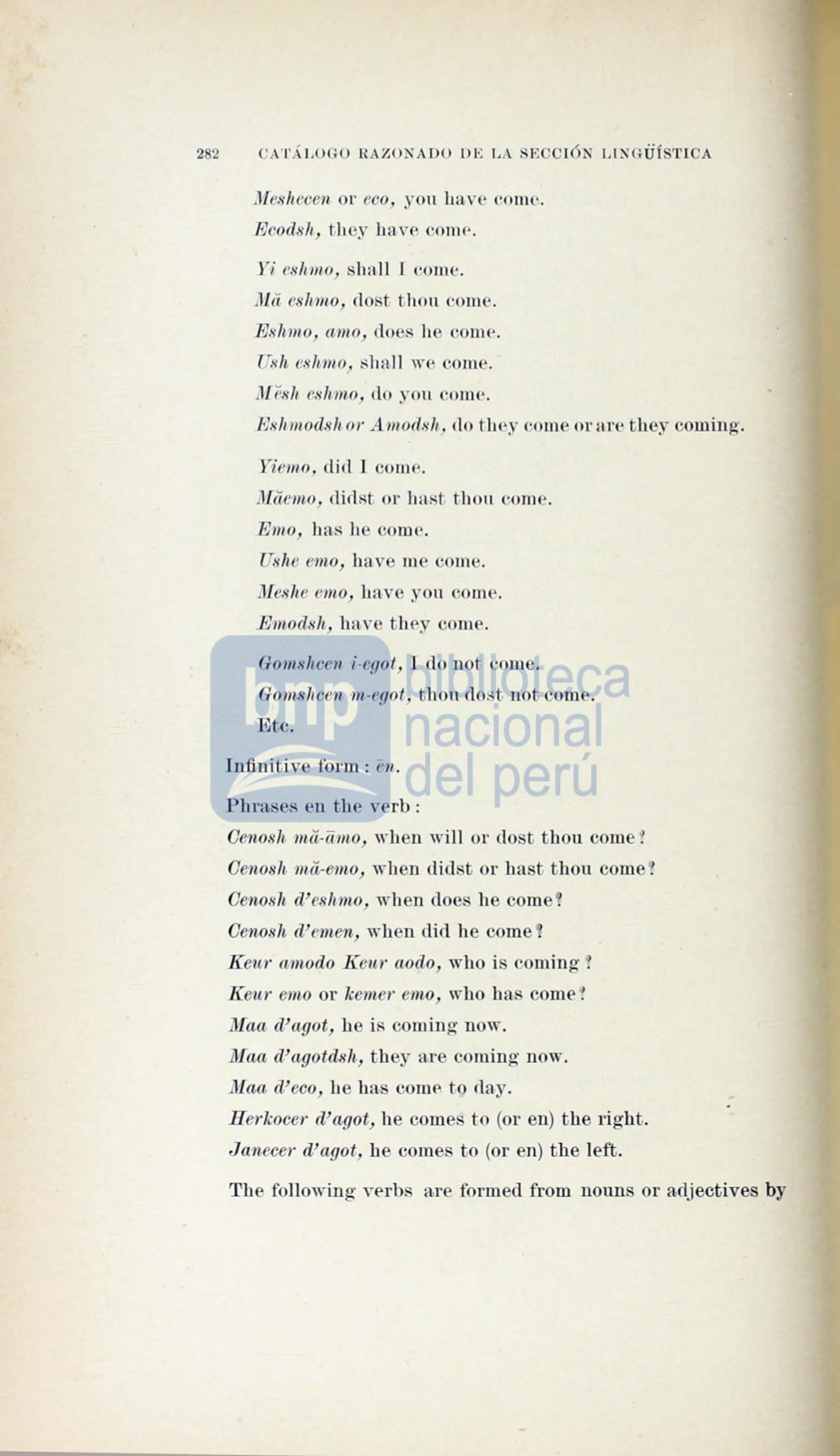

282
CA'l'1\LOGO HAZONADO
U~:
LA SECCIÓN LINGÜÍSTICA
.ilfeshecen
or
eco,
yon have come.
Ecodsh,
tlley lrnve comr ,
Yi eshmo,
slrn,11
r
come.
.illií eshmo,
dost t ho11 come.
Eshino, ciino,
does he come.
Ush eshmo,
shall we come.
Jli'ésh
eslvmo,
do you come.
Eshmodshor Amodsh,
do thry come orare tbey coming·.
Yieino,
did 1
come.
JJic'íeino,
clidst or hast thou come.
Eino,
has he come.
Ushe emo,
have me come.
Meshe eino,
have yon come.
Emodsh,
have thry come.
Gomshcen i-egot,
I do not come.
Goinslicen m-egot,
thou
do
t not come.
Etc.
Infinitive forro :
en.
Phrases en the verb :
Cenosh ina-amo,
when will or clost tbou come
1
Cenosh ma-emo,
when didst or hast thou come?
Cenosh d'eshino,
when cloes he come?
Cenosh d'einen,
when did he
come ~
K eiir ctinodo K eur aodo,
who is coming
f
K eur eino
or
kemer enw,
who has come
t
Maa cl'agot,
he iRcoming uow.
Mcui d'agotdsh,
they are comiug now.
111/.aa d'eco,
be has comr, to
clay.
H erkocer cl'cigot,
he comes to (or en) the right.
Janecer d'agot,
be comes to (or en) the left.
Tbe following verbs are formed from nouns or adjectives
by
















